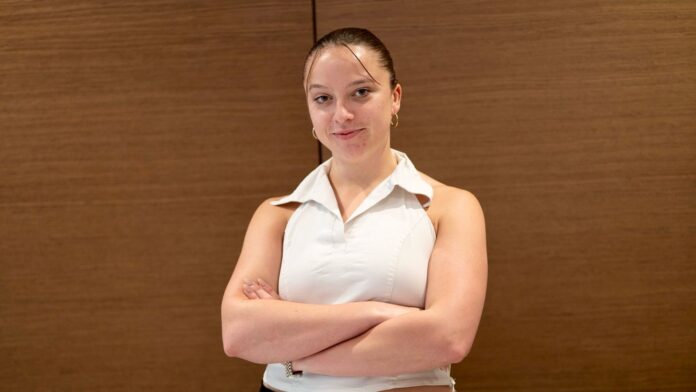In a powerful statement, Program Coordinator for Video as Evidence at Witness Georgia Edwards highlighted a growing concern about the erosion of trust in audiovisual media and its consequences for marginalized communities.
She made the statement at the second session of “The Verifiers,” a four-part training series hosted by the BO Foundation for Inclusive Media (BOFIM) and supported by Witness, focused on equipping journalists and media professionals with crucial skills for fact-checks.
Edwards’ comments come at a time when trust in mainstream media has reached historic lows, with many individuals questioning the objectivity and reliability of news organizations. In particular, the rise of social media and digital platforms has made it easier for misinformation to spread, often overshadowing the voices of those working to share factual, first-hand accounts.
She stressed that, with the growing spread of misinformation and disinformation especially concerning sensitive issues like human rights abuses the need for verifiable evidence has never been more critical.
Edwards explained that as public confidence in traditional media outlets continues to decline, these communities are increasingly left to fend for themselves when it comes to defending their truth.
“There is an erosion of trust in audiovisual media, which places a greater burden on communities to defend their truth,” Edwards said during the fact checking training. “This leaves them vulnerable to delegitimization, even when they are presenting truthful claims.”
Introducing the concept of OSINT during the training, she emphasized that, it is essential for journalists and human rights defenders to harness open-source information to verify content authenticity in today’s digital landscape.
“OSINT goes beyond simply searching for images online; it involves employing diverse techniques and methodologies to analyze, corroborate, and authenticate the footage or evidence you come across,” Edwards explained.
Edwards went on to discuss the challenges facing communities, particularly in Nigeria, where state actors and other powerful entities have often attempted to delegitimize citizens’ claims. She cited the #EndSARS protests in Nigeria as an example of how powerful forces can discredit public claims of human rights violations.
Georgia Edwards also highlighted Witness’s collaborative approach in creating the Fortifying Community Truth Cohort.
She explained that this initiative brings together journalists and fact-checkers from West and Central Africa, equipping them with verification methodologies to assess audiovisual content. This training enables them to defend community-generated footage and counter efforts by powerful entities to suppress the truth.
Edwards then introduced key tools and techniques from the session, emphasizing community-based visual verification—a method designed to help journalists authenticate audiovisual content and strengthen their cases for truth.
“At Witness, we developed a methodology for community-based researchers and fact-checkers to follow, allowing them to assess both the source and content of the footage, as well as find additional materials to corroborate their findings,” Edwards explained.
Edwards advocates for a reevaluation of how media outlets engage with these communities and a reinvestment in trust-building practices that prioritize transparency and accountability. She emphasizes that the fight for truth should not fall on the shoulders of the very people who have historically been denied a platform to share it.
As the media landscape continues to evolve, experts like Edwards call for a collective effort to restore credibility, amplify diverse voices, and prevent the further erosion of trust that threatens to fracture public discourse.
Meanwhile, in her closing remarks, the Executive Director of BOFIM, Blessing Oladunjoye, concluded the training by reminding the participants to employ the use of the taught tools.
“We believe that this training will empower our Verifiers to produce high-quality, accurate reports,” she said. “Moreover, we are particularly proud to have disability rights advocates and women actively participating in this program. This is part of our commitment to inclusivity and ensuring that all communities are represented in the fight for human rights.”
As the training progresses, BOFIM promised to continue to focus on equipping the journalists with the tools needed to fight misinformation and disinformation.








